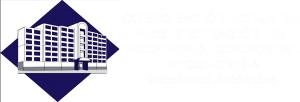Management accountants and ethical dilemmas: How to promote ethical intention? Journal of Management Control

At its inception, the CGMA program offered the credential based on experience alone. He acquired the educational background to become a management accountant when he completed coursework in economics, business, accounting, and finance as part of a Master of Business Administration (MBA) program. You’ll be recording and crunching numbers for internal review to help companies budget and perform better. You may help the company choose and manage its investments along with other company managers. Management accountants are risk managers, budgeters, planners, strategists, and decision-makers. They do the work that helps the company’s owner, manager, or board of directors make decisions.
How to manage the e-commerce surge: Practical tips for global compliance professionals

Preparing data for use within a company is one of the features that distinguishes a management accountant from other types of accounting jobs such as public accounting. Thirty-three months on after Covid 19 was documented,Footnote 5 the pandemic is still ever present and has remained a daunting global challenge. Competing effectively in the dynamic marketplace is a major challenge for organisations, and with the Corona pandemic exerting unprecedent effects on organisations globally, most organisations are facing a more daunting challenge to survive (e.g. [65, 67]). Organisations must strive to strategically orientate their management accounting practices to enable them find ways to effectively navigate the daunting challenges they face in this Corona era.
CFO optimism reaches highest level in 3 years, new survey shows
They highlight the key findings from the research and their relevance to the accounting and finance community. Another strategic imperative accelerated by COVID is a focus on sustainability for the long-term health of organizations and the planet. CFOs are responding in kind with investment in DE&I initiatives to combat income inequality and work on sustainability reporting standards. These activities are toward the ultimate goal of building sustainable value for our businesses, our stakeholders, and the global community. Though many hoped 2021 would be a year of full recovery from COVID, the reality has been more complex. Progress is being made, as vaccination rates slowly tick upwards and public sentiment improves, but we are still far from the complete economic recovery and return to normality many suggested would happen.
Performance Evaluation
A growing number of firms are taking a closer look at outsourcing (both onshore and offshore) as another way to help ease staffing constraints. According to the most recent “Top Firm Issues Survey” by the AICPA, finding qualified staff forms and instructions was a top concern for firms of all sizes. SAS 134 could be considered the most impactful of the seven standards as it changes the form and content for all auditor’s reports under Generally Accepted Auditing Standards (GAAS).
Strategic management accounting and organisational performance
He adds that management accountants are often called upon to monitor marketing efforts or act as analysts on special projects. These experiences can prepare them for additional management responsibilities either in finance or general management. Knese’s career provides an example of one of the possible paths for management accountants. He started as a public accountant and earned the CPA credential, then advanced to management accounting before earning the CMA credential. A management accountant may also identify trends and opportunities for improvement, analyze and manage risk, arrange the funding and financing of operations, and monitor and enforce compliance.
How to navigate the future of tax technology
- Management accountants may also require companies to implement various procedures to trace and report financial information via the company’s management information system.
- If you like keeping track of a company’s income and expenses but also want to hold a position with significant responsibility and authority, management accounting could be the job for you.
- The challenge is that, despite how carefully statements may be prepared, financial reporting errors can happen.
- I teach several of the chapters “out of order” so that I bring in some concepts early in the semester.
- In their study of Italian manufacturing companies, Cescon et al. [11] found a positive association of perceived environmental uncertainty and strategic pricing usage as a feature of the strategic decision-making SMA technique.
Managerial Accounting students can be discouraged by the tendency of their textbook to be overly laden with jargon and numeric calculations. While the book does provide the required terminology and numeric examples, it is much more readable than a typical textbook in the field. The structure of chapters, practice problems, examples, all follow a consistent pattern.
I didn’t see any spelling errors but sometimes words are scrunched together (no space where there should be some). The text is as successful at being culturally relevant as a Managerial Accounting text could be. The subject matter does not lend itself to promoting diversity nor to generating content that is offensive or controversial. Sections of book were clearly identified and coverage seemed to flow consistently. It could expand on some of the illustrative examples to include multi-cultural products and/or company names.
Accounting provides the management with relevant information for ensuring and sustaining growth and profitability. The strategic management accounting foundation emphasises that in order to fully fulfil its management decision-making enabling function, accounting practices must not only focus on the internal but also on the external components relating to the organisation’s operations. In the strategic management accounting discourse, organisational strategy has been mentioned as one of the key factors that would condition strategic management accounting practices of a firm (e.g. [9, 58, 70, 86]). For example, Turner et al. [86] note that in hotel property setting, strategic management accounting use would hinge on the market orientation business strategy of the firm. Over the past decade, management accounting has seen changes not just within existing domains of the field but has also witnessed extensions outside its established realms of activity. This book captures key facets of current thoughts, concerns, and issues in management accounting.
This makes the book a valuable contribution to our knowledge of current management accounting issues in practice. I can see how chapters in this book could supplement a traditional textbook for upper level undergraduate and MBA courses and supplement journal articles for more research‐based postgraduate courses. This section has chapters on EVA (Bouwens and Speklé), inter‐organizational relationships (Kraus and Lind), public‐private partnerships (Moll and Humphrey), and knowledge resources (Roberts). These chapters were some of the best in the book as they showed how management accounting is being adapted to deal with current business issues. While EVA is now covered to some extent in many conventional textbooks, the other areas represent potential new topic areas. The chapter by Roberts on knowledge resources is a good example of one of these new applications of management accounting.
In this chapter, Roberts examines how knowledge resources develop within an organization and then explores some of the economic characteristics of knowledge. The chapter ends with some ideas about how management accounting concepts and information can be useful in this context. The third edition of Issues in Management Accounting includes 20 new and original chapters on management accounting topics written by management accounting academics from around the world.
Sedevich-Fons [77] notes further that when both are used in conjunction that would spread SMA techniques and enable full exploitation of Quality Management Systems. Cadez and Guilding [9] report that companies that endorse the analyser strategy, which is a deliberate strategy formulation approach, are not highly market oriented, but tend to show high usage of SMA techniques, except for competitor accounting technique. Further, they report that prospector strategy-oriented companies also pursue a deliberate strategy formulation approach, but are highly market oriented, and SMA techniques usage is fairly high (for competitor accounting) and averagely high (for strategic costing). For very high prospector-oriented companies, they are highly market oriented, have a strong strategy drive and a very high SMA techniques usage. For the defender strategy-type companies, they suggest that such companies are not only average in their market orientation, but also in their usage of SMA techniques. Across the various streams of management, formalisation has been mentioned as a key contingency factor in understanding the operational dynamics of organisations (e.g. [58, 63, 64]).



